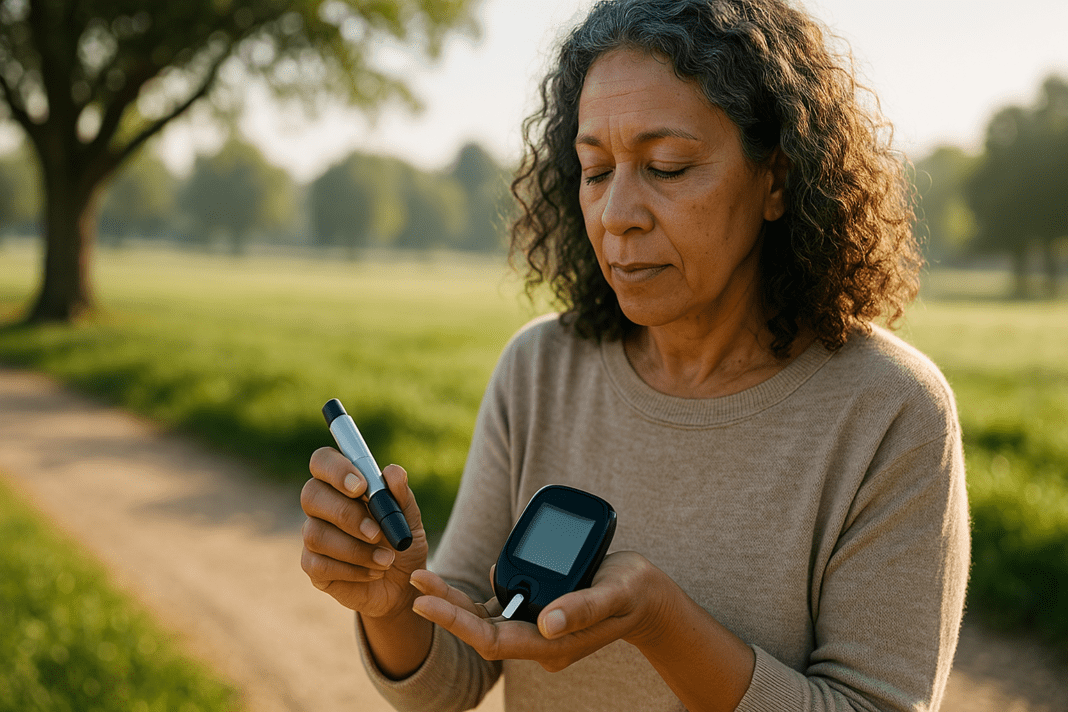Understanding the Landscape of Type 2 Diabetes Today
Type 2 diabetes has become one of the most pressing public health challenges of the 21st century. With over 400 million people worldwide currently diagnosed and rising prevalence rates across both developed and developing countries, this metabolic disorder demands continual scientific attention. In recent years, advances in genetic analysis, data-driven epidemiology, and digital health technology have revolutionized how researchers understand, prevent, and manage the disease. The latest diabetes news type 2 doesn’t merely describe trends in case numbers—it reflects a deeper shift toward precision medicine, early intervention, and individualized care.
You may also like: Breakthroughs in Current Diabetes Research: What the Latest Studies Reveal About Treatment and Prevention
As scientific knowledge grows, so does the complexity of the disease. No longer viewed solely as a condition of poor lifestyle choices, type 2 diabetes is increasingly understood through a multi-factorial lens that includes socioeconomic factors, epigenetics, environmental exposures, and even gut microbiome composition. This broader understanding influences both policy and clinical decisions. The diabetes news emerging today is not just for physicians or academics—it shapes guidelines, informs the public, and empowers patients with knowledge grounded in rigorous, peer-reviewed research.
New Research on Diabetes and Risk Factor Identification
One of the most critical areas of investigation in the latest diabetes research focuses on identifying who is most at risk—and why. Traditional risk factors such as obesity, sedentary lifestyle, and family history are now being complemented by more nuanced predictors. For example, recent diabetes news from genomic studies has uncovered specific gene variants, such as those in the TCF7L2 and SLC30A8 genes, which significantly raise the likelihood of developing diabetes, independent of lifestyle factors. These discoveries underscore the necessity of incorporating genetic screening into risk stratification models.
Socioeconomic status has also emerged as a powerful predictor. Individuals in lower-income brackets often have limited access to nutritious food, healthcare, and exercise opportunities. Studies published in the most recent research on diabetes demonstrate that economic insecurity can directly influence insulin resistance through chronic stress pathways. Moreover, researchers are exploring how environmental toxins—such as persistent organic pollutants and air pollution—may play a previously underappreciated role in triggering metabolic dysfunction, especially in urban populations.
Another groundbreaking revelation in recent diabetes news involves the gut microbiome. Studies show that individuals with type 2 diabetes often exhibit distinct microbial profiles compared to non-diabetic individuals. Imbalances in gut bacteria can affect glucose metabolism, inflammation, and even insulin sensitivity. This has led scientists to propose the use of probiotics, prebiotics, and microbiota-targeted interventions as potential preventive strategies—a new frontier in diabetes care that reflects the dynamic nature of ongoing research.

Latest Advances in Pharmacological Treatments for Type 2 Diabetes
Alongside advances in diagnostics and risk assessment, there has been a surge in therapeutic innovation. The latest diabetes news type 2 includes significant breakthroughs in pharmacological treatments that promise not only better glycemic control but also improved cardiovascular and renal outcomes. Among these, SGLT2 inhibitors and GLP-1 receptor agonists have garnered substantial attention.
SGLT2 inhibitors, originally developed to enhance glucose excretion through the kidneys, have shown unexpected benefits in heart failure management and kidney disease progression. Clinical trials such as EMPA-REG OUTCOME and DAPA-HF have reshaped treatment algorithms and led to the widespread adoption of these agents even in non-diabetic populations. Meanwhile, GLP-1 receptor agonists, which mimic an incretin hormone that boosts insulin secretion, have demonstrated effectiveness in reducing weight, lowering blood pressure, and curbing appetite—traits highly desirable in the context of type 2 diabetes.
One of the most exciting areas in the latest diabetes research involves combination therapies and the development of dual or triple agonists. These novel agents, which target multiple metabolic pathways simultaneously, are currently in Phase III clinical trials. By leveraging mechanisms from both GLP-1 and GIP (glucose-dependent insulinotropic polypeptide) pathways, these drugs show promise for superior efficacy with fewer side effects. This evolution of pharmacotherapy, as seen in recent diabetes news, reflects a shift from symptom management to disease modification and even potential reversal.
Technological Innovations and Digital Health Integration
Another cornerstone of the most recent research on diabetes is the growing integration of digital health tools. From continuous glucose monitors (CGMs) to smartphone apps and artificial intelligence (AI)-driven decision support systems, technology is transforming patient engagement and disease tracking. The latest diabetes news highlights how real-time data collection not only empowers patients but also aids clinicians in delivering personalized care.
AI algorithms can now predict glucose trends, recommend insulin doses, and detect dangerous patterns before complications arise. For example, the use of machine learning in analyzing large datasets has led to predictive models with high accuracy in forecasting hyperglycemic events. Telemedicine platforms, meanwhile, have democratized access to endocrinologists and diabetes educators, especially for rural or underserved populations.
Moreover, digital platforms enable better lifestyle monitoring. Wearable fitness trackers, dietary logging apps, and sleep analysis tools can all be integrated into comprehensive diabetes management plans. This synergy between behavior tracking and medical oversight represents a new era of precision lifestyle medicine, where interventions can be both timely and tailored. The convergence of tech and medicine in the context of type 2 diabetes reflects one of the most exciting trajectories highlighted in current diabetes news.
Diet, Lifestyle, and Personalized Interventions in Focus
While medications and technology are vital, the foundation of type 2 diabetes management remains rooted in lifestyle modification. The latest diabetes research increasingly supports the idea that not all dietary strategies are equally effective for all individuals. Personalized nutrition plans, informed by genetics, microbiome analysis, and metabolic profiling, are being tested for their ability to outperform generic advice.
For instance, recent diabetes news has featured studies exploring the role of time-restricted eating, low-carbohydrate diets, and plant-based approaches in improving insulin sensitivity and lowering A1C levels. These studies emphasize the need to move beyond “one-size-fits-all” guidelines and toward interventions that reflect individual metabolic responses. Some individuals may respond better to Mediterranean diets, while others see more significant improvements with ketogenic regimens.
Physical activity, too, is undergoing a redefinition in diabetes care. High-intensity interval training (HIIT) and resistance training are being investigated for their unique metabolic benefits. These exercise modalities appear to promote mitochondrial function and glucose uptake independent of insulin pathways, offering an additional layer of glucose regulation. As reported in the latest diabetes news type 2, incorporating these exercise forms into patient education and care strategies could significantly enhance long-term outcomes.

Addressing Health Disparities and Global Trends
Beyond clinical research, recent diabetes news has drawn attention to persistent health disparities both within and between countries. Type 2 diabetes disproportionately affects minority populations, including African American, Hispanic, and Native American communities in the United States, as well as Indigenous populations in Canada and Australia. These disparities stem not only from genetic predispositions but also from systemic inequities in healthcare access, education, and economic opportunity.
The World Health Organization and other international bodies have emphasized the need for culturally tailored public health strategies. Community-based interventions, mobile clinics, and language-accessible education programs are proving effective in improving outcomes in high-risk groups. The most recent research on diabetes advocates for health equity as a core component of any comprehensive diabetes strategy.
Meanwhile, global trends are shifting. Developing countries are witnessing surges in type 2 diabetes rates as urbanization, westernized diets, and sedentary lifestyles become more common. In India and China, for example, younger adults are increasingly being diagnosed with the disease—a trend that carries significant implications for workforce productivity and healthcare resource allocation. Addressing these trends requires a coordinated international response, guided by the principles of sustainability and population-level prevention.
Long-Term Outcomes and the Promise of Disease Remission
Perhaps the most encouraging theme in the latest diabetes research is the growing evidence supporting the potential for disease remission. Although once viewed as a chronic, progressive condition, type 2 diabetes is now considered potentially reversible under specific conditions, especially when diagnosed early. Clinical trials such as DiRECT (Diabetes Remission Clinical Trial) have shown that intensive lifestyle interventions—particularly very low-calorie diets—can lead to sustained remission in a significant proportion of participants.
This shift in perspective has profound implications. The idea that diabetes remission is achievable motivates patients and reframes treatment goals. Rather than simply aiming for control, clinicians and patients alike can aspire toward full metabolic recovery. However, maintaining remission often requires ongoing behavioral support, structured follow-up, and, in some cases, pharmacological assistance.
Emerging biomarkers, such as C-peptide levels and beta-cell function indices, are being used to predict who is most likely to benefit from remission strategies. Researchers are also investigating how early treatment intensification—before the “glucose toxicity” threshold is reached—can preserve pancreatic function and halt disease progression. This is where the most recent research on diabetes intersects with hope, offering a path toward not just better outcomes but actual healing.
Implications for Clinical Practice and Public Health Policy
The practical implications of this evolving body of knowledge are substantial. For healthcare providers, staying current with the latest diabetes news type 2 is essential for offering evidence-based care. Treatment algorithms are rapidly changing, with new drug classes, technology platforms, and care models becoming standard practice. Medical education must adapt accordingly, ensuring that clinicians are equipped to apply the latest insights with skill and cultural sensitivity.
From a public health perspective, the emphasis is shifting toward proactive strategies: screening high-risk populations earlier, integrating social determinants of health into risk assessments, and incentivizing preventive behaviors through policy and program design. Governments and health systems are increasingly recognizing that addressing diabetes is not just a clinical issue but a societal one, requiring intersectoral cooperation across education, transportation, food systems, and urban planning.
Insurance models are also evolving in response to the latest diabetes research. Value-based care initiatives reward outcomes rather than services delivered, promoting comprehensive, patient-centered approaches. In this framework, digital monitoring, lifestyle coaching, and community engagement become cost-effective tools that improve both population health and economic sustainability.

Frequently Asked Questions: Exploring New Frontiers in Type 2 Diabetes Research and Care
1. How is the role of sleep emerging in the latest diabetes research?
Recent findings have started linking disrupted sleep patterns to metabolic dysfunction, suggesting that poor sleep may not only be a symptom of type 2 diabetes but also a contributing risk factor. The most recent research on diabetes has explored how circadian misalignment—such as shift work or irregular sleep schedules—can impair glucose regulation and insulin sensitivity. Scientists are also investigating how improving sleep hygiene through behavioral therapy or light exposure might positively impact glycemic control. While sleep is not yet a formal part of clinical diabetes guidelines, the latest diabetes news type 2 increasingly points to it as a modifiable factor worth addressing. As this area matures, we can expect new digital tools and sleep-based interventions to become part of comprehensive diabetes care.
2. What does recent diabetes news reveal about diabetes in adolescents and young adults?
Although traditionally seen in older adults, type 2 diabetes is now appearing with greater frequency in younger populations. The latest diabetes news highlights alarming trends in adolescents, where earlier onset is often linked to more aggressive disease progression and higher long-term complication risks. This new research on diabetes is shedding light on how early exposure to high sugar diets, digital sedentarism, and socioeconomic disadvantages are driving this shift. As part of a proactive response, public health experts are now advocating for school-based interventions, early screening, and family-centered lifestyle support. This shift in age demographic is becoming a critical focus in both clinical research and policy development within the diabetes 2 news landscape.
3. How are mental health and emotional well-being being integrated into diabetes care?
A growing body of literature is examining the bidirectional relationship between psychological stress and diabetes outcomes. While stress has long been considered a complicating factor, the latest diabetes news type 2 suggests it may also serve as a trigger for poor glycemic control through hormonal pathways involving cortisol and adrenaline. Emotional burnout, diabetes distress, and depression are now receiving greater attention in care protocols, particularly with support from digital platforms offering mental health resources. The latest diabetes research supports integrated care models that treat emotional well-being as a cornerstone of effective diabetes management. This represents a paradigm shift, positioning mental health not as an afterthought but as a primary focus in improving quality of life and outcomes.
4. What advancements in remote care are shaping diabetes management?
The COVID-19 pandemic accelerated the adoption of remote care, and the momentum hasn’t slowed. The most recent research on diabetes demonstrates that virtual care platforms can deliver outcomes comparable to in-person visits, especially for stable patients. Through remote glucose monitoring, AI-driven alerts, and virtual coaching, patients can now receive real-time, customized support from the comfort of their homes. New mobile technologies allow clinicians to intervene early, adjusting treatment plans based on continuous data rather than episodic visits. As seen in recent diabetes news, insurers and healthcare systems are now investing in infrastructure to make remote diabetes care scalable and sustainable for diverse populations.
5. How does inflammation play a role in the pathogenesis of type 2 diabetes according to recent research?
Inflammation is increasingly recognized not just as a consequence but as a potential driver of insulin resistance. The latest diabetes research highlights chronic low-grade inflammation, often stemming from visceral fat and poor dietary habits, as a key mediator in the development of type 2 diabetes. Cytokines such as TNF-alpha and interleukin-6 are being studied as biomarkers and possible therapeutic targets. Anti-inflammatory dietary patterns, such as the Mediterranean diet, and pharmacological agents like colchicine are being evaluated for their ability to reduce inflammation and improve insulin sensitivity. These findings, which have been emphasized in the latest diabetes news type 2, are redefining how we think about metabolic disease—from a purely hormonal disorder to one deeply intertwined with immune dysfunction.
6. What promising research is being conducted on beta-cell regeneration?
Among the most exciting developments in the latest diabetes research is the exploration of beta-cell regeneration. Traditionally believed to be irreversible, beta-cell loss is now being approached with regenerative therapies involving stem cells, gene editing, and pancreatic islet transplantation. Clinical trials are underway to assess whether lab-grown insulin-producing cells can safely and sustainably restore glucose control. While these therapies are still largely experimental, they represent a fundamental shift in diabetes news narratives—from managing decline to restoring function. The most recent research on diabetes may one day lead to curative interventions, particularly when combined with early detection and precision medicine approaches.
7. Are environmental toxins playing a greater role in diabetes risk than previously thought?
Emerging evidence suggests that endocrine-disrupting chemicals (EDCs), such as bisphenol A and phthalates, may interfere with insulin signaling and glucose metabolism. These environmental toxins are ubiquitous—in plastics, food packaging, and even household dust. Recent diabetes news has brought attention to the long-term effects of low-level chronic exposure, particularly in vulnerable populations like children and pregnant women. Research is now focusing on how cumulative toxic loads might predispose individuals to type 2 diabetes, independent of traditional lifestyle factors. These findings are prompting calls for stricter environmental regulations and greater consumer awareness, marking a new chapter in diabetes 2 news focused on prevention at a population level.
8. What are the financial implications of newer diabetes therapies and technologies?
While the latest diabetes news often highlights the clinical benefits of novel drugs and devices, there is growing concern over their affordability and accessibility. Many of the most advanced treatments—like GLP-1 receptor agonists or continuous glucose monitors—come with a high price tag, placing them out of reach for underinsured or low-income patients. The latest diabetes research increasingly examines cost-effectiveness, revealing that while these therapies can reduce complications and hospitalizations, upfront costs remain a barrier. As a result, there is a movement toward value-based pricing models and broader insurance coverage. Understanding this economic dimension is essential for interpreting the full context of recent diabetes news and its practical implications.
9. How is the microbiome influencing treatment personalization?
Personalized medicine is evolving rapidly, and the gut microbiome is playing a starring role. Studies now indicate that an individual’s microbial composition can affect their response to different diets, medications, and even exercise regimens. This area of research is particularly compelling in the latest diabetes news type 2, where tailored interventions based on microbiome analysis are being developed. Probiotic supplements, dietary fiber diversity, and even fecal microbiota transplantation are being investigated as therapeutic strategies. The ability to stratify patients based on microbiome profiles could revolutionize how treatments are prescribed, making them more precise and effective.
10. What social innovations are emerging to address global diabetes disparities?
Addressing type 2 diabetes on a global scale requires more than biomedical solutions—it demands social innovation. Recent diabetes news has highlighted programs that deploy community health workers, peer coaching, and mobile health vans to bring care to underserved areas. Countries like Rwanda and Mexico are piloting culturally tailored interventions that combine traditional knowledge with modern science. These initiatives, informed by the most recent research on diabetes, emphasize empowerment, education, and long-term engagement. Social media platforms are also being used to build support communities, combat misinformation, and promote evidence-based self-care practices. As we expand our understanding of health determinants, these community-centered approaches are proving to be just as impactful as clinical breakthroughs in the fight against diabetes.
Conclusion: Charting the Future with the Latest Diabetes News Type 2
As we absorb the latest diabetes news type 2, it becomes clear that the field is undergoing a renaissance. The disease is being redefined—not only in its biological mechanisms but in how it is perceived, managed, and potentially reversed. From cutting-edge pharmacology to AI-powered decision-making, from gut microbiome insights to global health equity initiatives, the scope of new research on diabetes is both deep and wide. It challenges outdated assumptions and replaces them with data-driven, personalized, and hopeful narratives.
The most recent research on diabetes is not just about managing glucose levels—it is about restoring agency to individuals, reducing disparities, and reimagining care delivery systems. As science continues to uncover the intricate pathways of metabolic health, we are called to respond with equally sophisticated and compassionate solutions. For clinicians, patients, and policymakers alike, keeping up with the latest diabetes research is no longer optional—it is essential. In doing so, we do more than stay informed; we move toward a future where type 2 diabetes is no longer a life sentence but a manageable, and in many cases, reversible condition. The road ahead is illuminated not just by breakthroughs, but by the growing belief that we can change the narrative of diabetes—one discovery at a time.
insulin resistance research, metabolic syndrome insights, GLP-1 medications, diabetes remission studies, cardiovascular health and diabetes, gut microbiome and metabolism, digital health tools for diabetes, beta-cell regeneration therapy, anti-inflammatory diets, socioeconomic health disparities, genetic markers for diabetes, wearable glucose monitors, diabetes and mental health, early onset type 2 diabetes, personalized nutrition science, chronic disease management, public health and diabetes, endocrine disruptors and health, sleep and metabolic health, emerging diabetes treatments
Further Reading:
Association of risk factors with type 2 diabetes: A systematic review
Disclaimer
The information contained in this article is provided for general informational purposes only and is not intended to serve as medical, legal, or professional advice. While MedNewsPedia strives to present accurate, up-to-date, and reliable content, no warranty or guarantee, expressed or implied, is made regarding the completeness, accuracy, or adequacy of the information provided. Readers are strongly advised to seek the guidance of a qualified healthcare provider or other relevant professionals before acting on any information contained in this article. MedNewsPedia, its authors, editors, and contributors expressly disclaim any liability for any damages, losses, or consequences arising directly or indirectly from the use, interpretation, or reliance on any information presented herein. The views and opinions expressed in this article are those of the author(s) and do not necessarily reflect the official policies or positions of MedNewsPedia.


